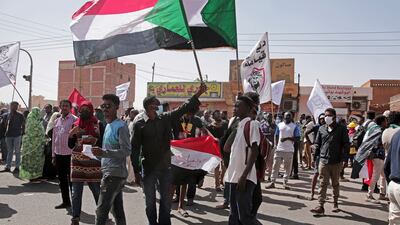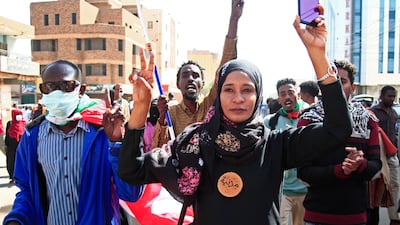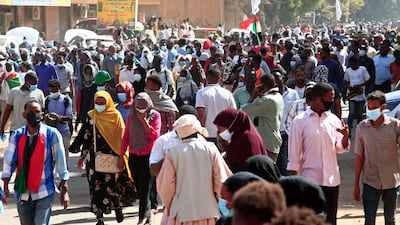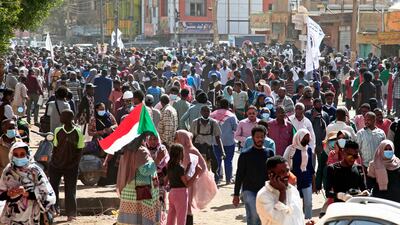Two days of civil disobedience and strikes began in Sudan on Tuesday, a day after the use of deadly force, including live rounds, against peaceful protesters was roundly condemned by many, including the US and the UN.
Seven protesters were shot dead by security forces during street rallies against military rule on Monday while several dozens also sustained gunshot wounds, according to a medical group aligned with the pro-democracy movement.
The rallies were the latest since mass protests began after an October 25 coup that upended Sudan’s democratic transition. Monday's death toll took the number of protesters killed since the coup to at least 71. More than 2,000 have been wounded.
The civil disobedience and strikes were called for by the Forces of Freedom and Change (FFC), an alliance of political parties that was the political patron and sponsor of the civilian-led government sacked by army chief and coup leader Gen Abdel Fattah Al Burhan.
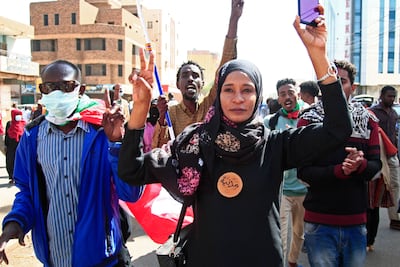
“Let the period of civil disobedience be a time for regrouping and uniting our revolutionary forces and preparing them for the decisive battle to bring down the regime,” the FFC said on Monday night.
Khartoum's streets were almost empty of vehicular traffic and most shops in the city centre were closed in the early morning hours. However, many stores in the area opened and traffic picked up by lunch time, with residents apparently taking advantage of a day without street protests to shop and run errands.
Monday's protest call was immediately followed by statements from trade and professional unions, which declared their intention to heed the call for strikes.
The Interior Ministry, which is in charge of the police, blamed Monday’s violence on the protesters, claiming they adopted “semi-military tactics.”
It said the police only used water cannons and tear gas but acknowledged that seven protesters had been killed in Khartoum.
The ministry said 50 policemen and 22 “citizens” were wounded while 77 protesters were detained.
International condemnation
Monday’s violence drew international condemnation that could have only turned up pressure on Gen Al Burhan and his associates to step aside in the face of growing opposition to their rule.

US State Department spokesman Ned Price said on Twitter that Washington was "concerned by reports of escalating violence".
Mr Price said Assistant Secretary of State Molly Phee and new special envoy David Satterfield "are headed to Khartoum and will reiterate our call for security forces to end violence and respect freedom of expression and peaceful assembly". The pair are expected in Khartoum this week.
Meanwhile, Britain and France were among nine UN Security Council members who urged all parties in Sudan to “exercise the utmost restraint” after Monday's deadly violence.
“We express our serious concern about the military coup in Sudan on October 25, 2021", said the text, which was also signed by Mexico, Albania, Brazil, Gabon, Ghana, Ireland and Norway.
The statement, released after a meeting of the 15-member council, also urged all parties to “refrain from the use of violence and emphasise the importance of full respect for human rights, including the right to peaceful assembly and freedom of expression".
Significantly, the meeting involved Karim Khan, a prosecutor with the International Criminal Court.
The UN mission in Sudan also strongly denounced Monday's violence, describing the use of live rounds by security forces as unacceptable.
“Violence must stop. We again call on authorities to cease using force against peaceful protesters and [to] conduct credible investigations into such incidents,” it said on its Twitter account.

